Hop Harvest at Anheuser Busch’s Elk Mountain Farm
Sprawling across 1,700 acres in Idaho’s northern most region lies the world’s largest contiguous hop farm. Elk Mountain Farms, located in Bonner’s Ferry, Idaho, just 10 miles from the Canadian border, produces a majority of the hops used by Anheuser Busch InBev’s (ABI) High End Brands Division.
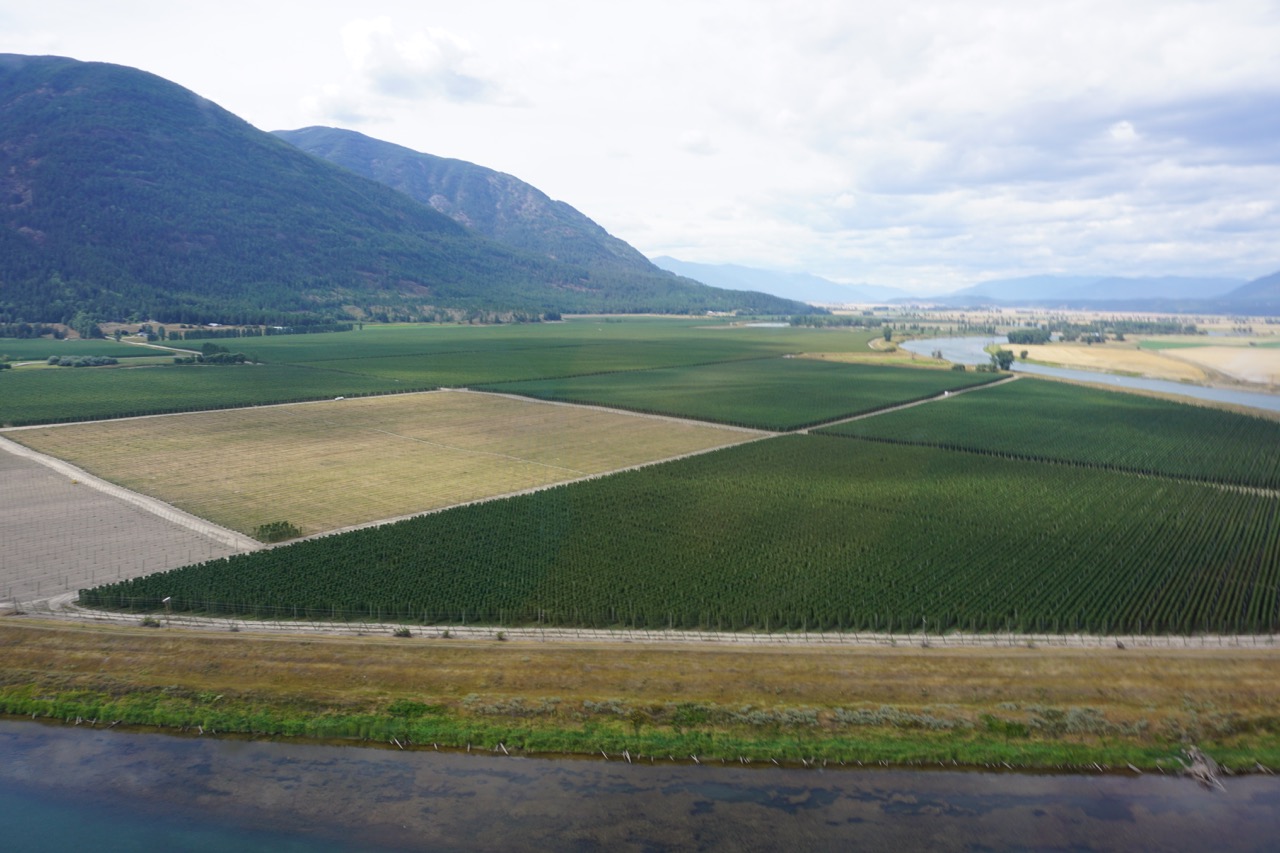
When breweries like Goose Island, Blue Point, Elysian, 10 Barrel, Golden Road, Breckenridge, Four Peaks and Devils Backbone sign with ABI, they often reference a new wealth of resources at their disposal. These vast expanses of hop fields made up of vines stretching upwards of 20 feet in the air represent just a fraction of those excess material goods. By signing with ABI’s “High End” brand division (the title ABI has bestowed upon the craft brands they’ve purchased), breweries immediately gain a competitive advantage ranging from better distribution channels, a complete consultation of processes, as well as access to one of the most extensive hop repositories in the country.
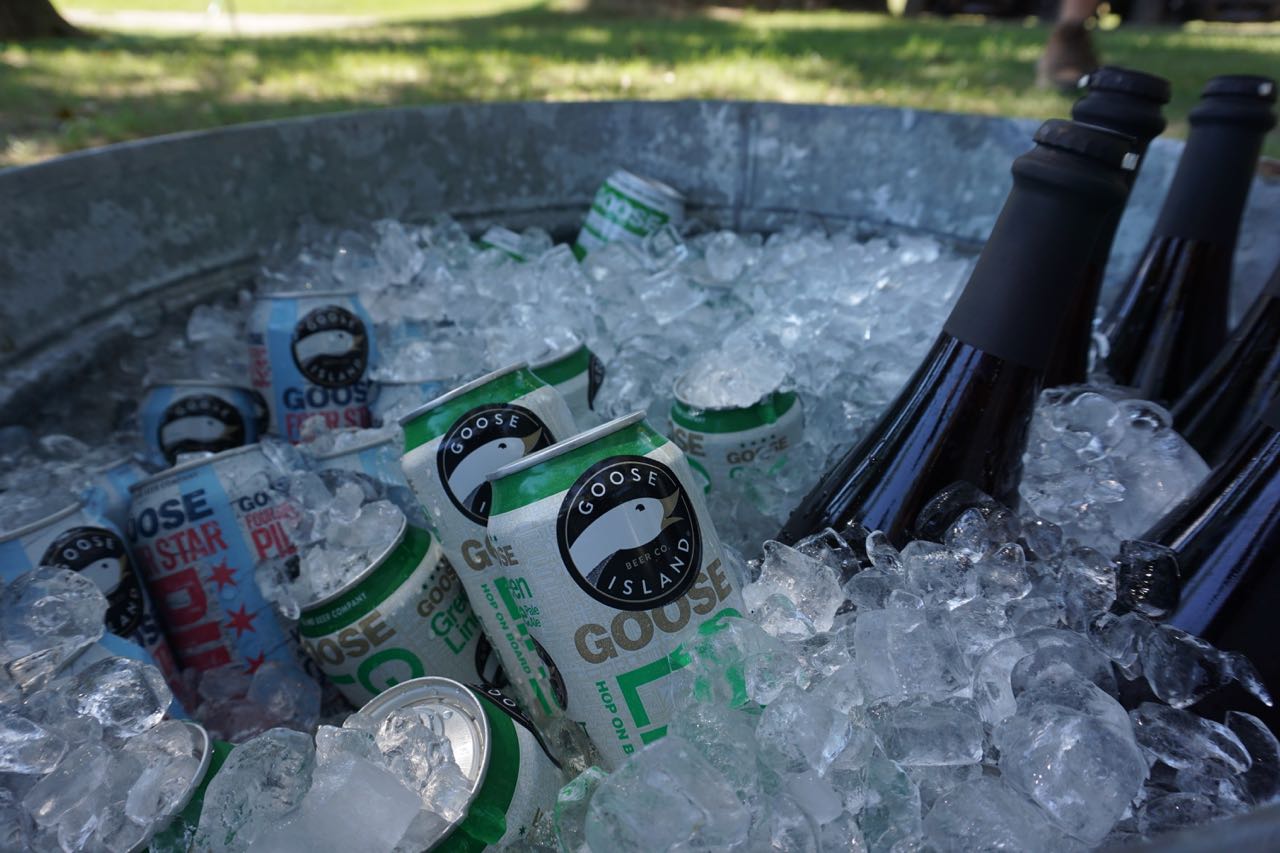
Elk Mountain Farm was first established in 1987 by August Busch III to ensure a consistent supply of Hallertau and Saaz hop varieties used in Budweiser and Bud Light. However, the farm’s role has evolved over time. By 2010, all hops were pulled due to an over-supply in the market, and the farm was forced to shift focus toward wheat and canola. With the onset of the craft beer boom as well as Anheuser Busch’s acquisition of Goose Island in 2012, Elk Mountain returned to its hoppy roots and found a new purpose.
“Those were challenging years. We lost most of our seasonal staff and some of our full-time staff, but we made a go of it,” said Ed Atkins, general manager of Elk Mountain Farm.
“We were going through a bit of a down turn from a hop farm perspective. Then Brett Porter, one of the head brewers for Goose Island, came along and he was a breath of fresh air, very energetic [and] passionate. He brought some life back to us,” recalled Atkins.
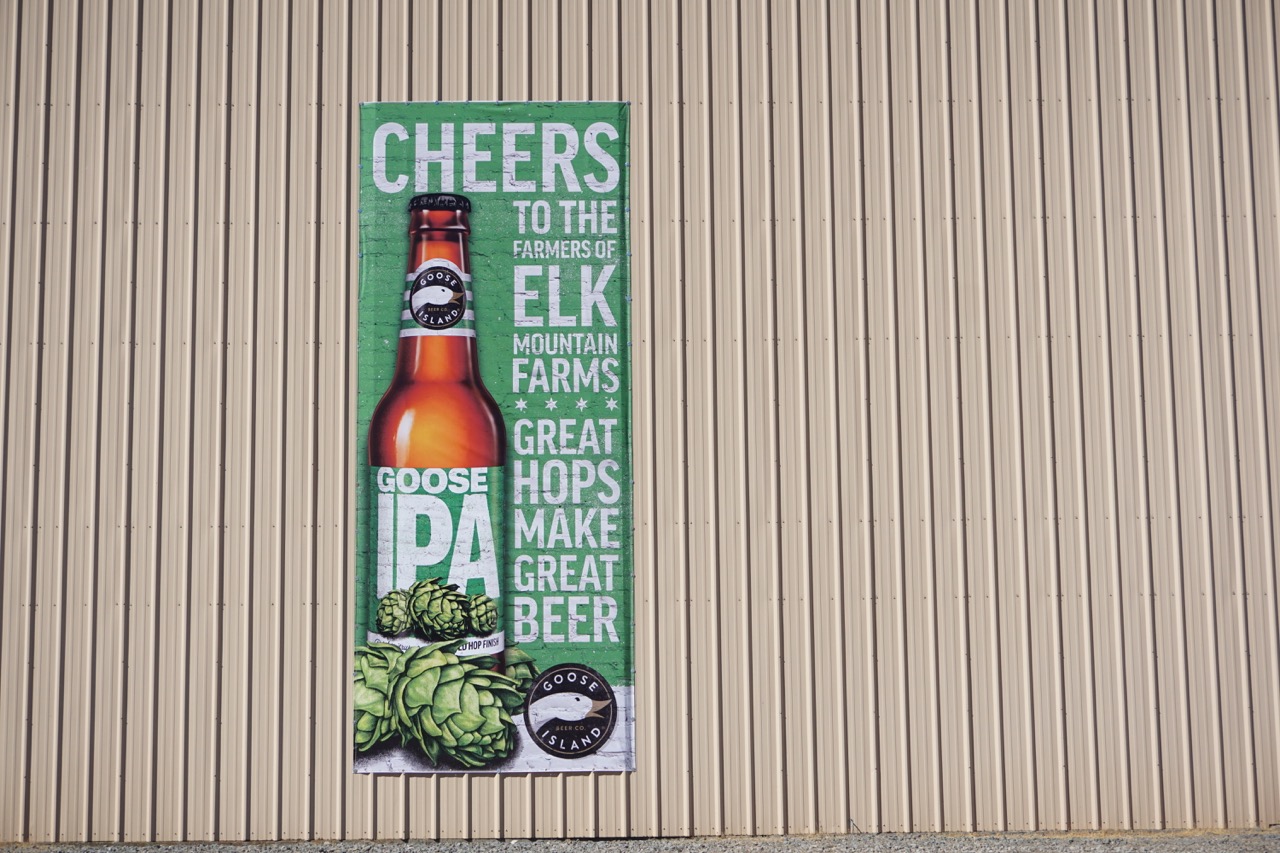
Goose Island’s immediate need for mass quantities of hops for brands like their flagship IPA and Ten Hills helped reinvigorate Elk Mountain Farms. As Goose Island Head Brewer Keith Gabbett described, “We typically need at least an eight-pound yield of hops for pilot batches alone, and at least 88 pounds for every large-scale batch.”
Now, during the height of the hop harvest season, the farm employs upwards of 220 employees. Additionally, over the past four years, Elk Mountain has leapt to the forefront of innovation as they now cultivate and produce 10 distinct commercial hop varieties, with even more experimental varieties still in development.
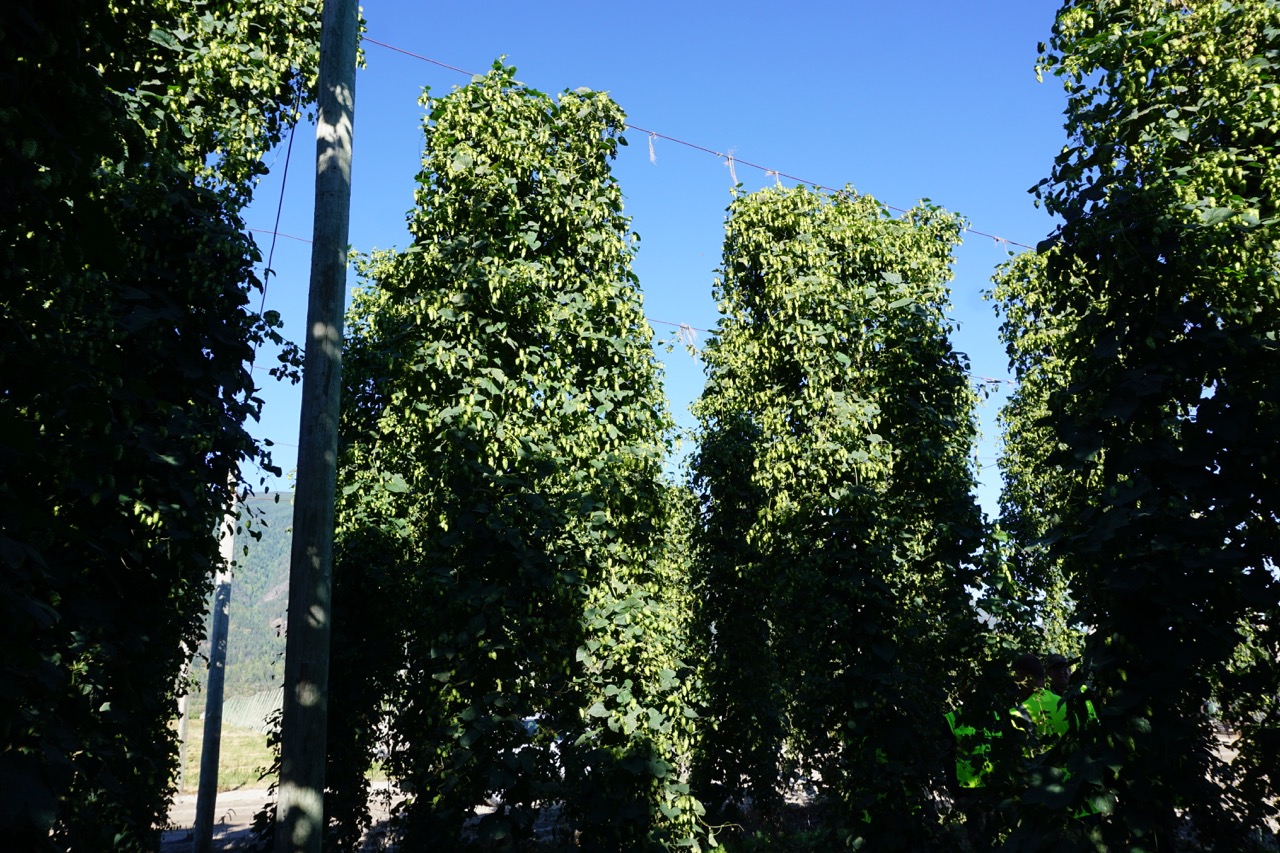
“Craft is all about innovation, what’s the next big thing? What’s different? We’ve had experimentals throughout time, but it wasn’t a big emphasis until Goose came around. Right now we have 108 experimental lines,” said Atkins. The added focus of cultivating these experimental varieties has allowed Elk Mountain to build a micro processing plant to help properly develop, harvest and test small batches. But developing new varieties isn’t the only way this hop farm is innovating.
To help streamline the harvesting process, Elk Mountain has developed their own combine that significantly decreases the time it takes to harvest vines and cones from the fields and transport them to the kiln, thereby better preserving the quality of the plant. These combines can cost upward of a million dollars to produce, and the Elk Mountain team is one of only a handful of farms who have been able to successfully develop effective versions of the machine.
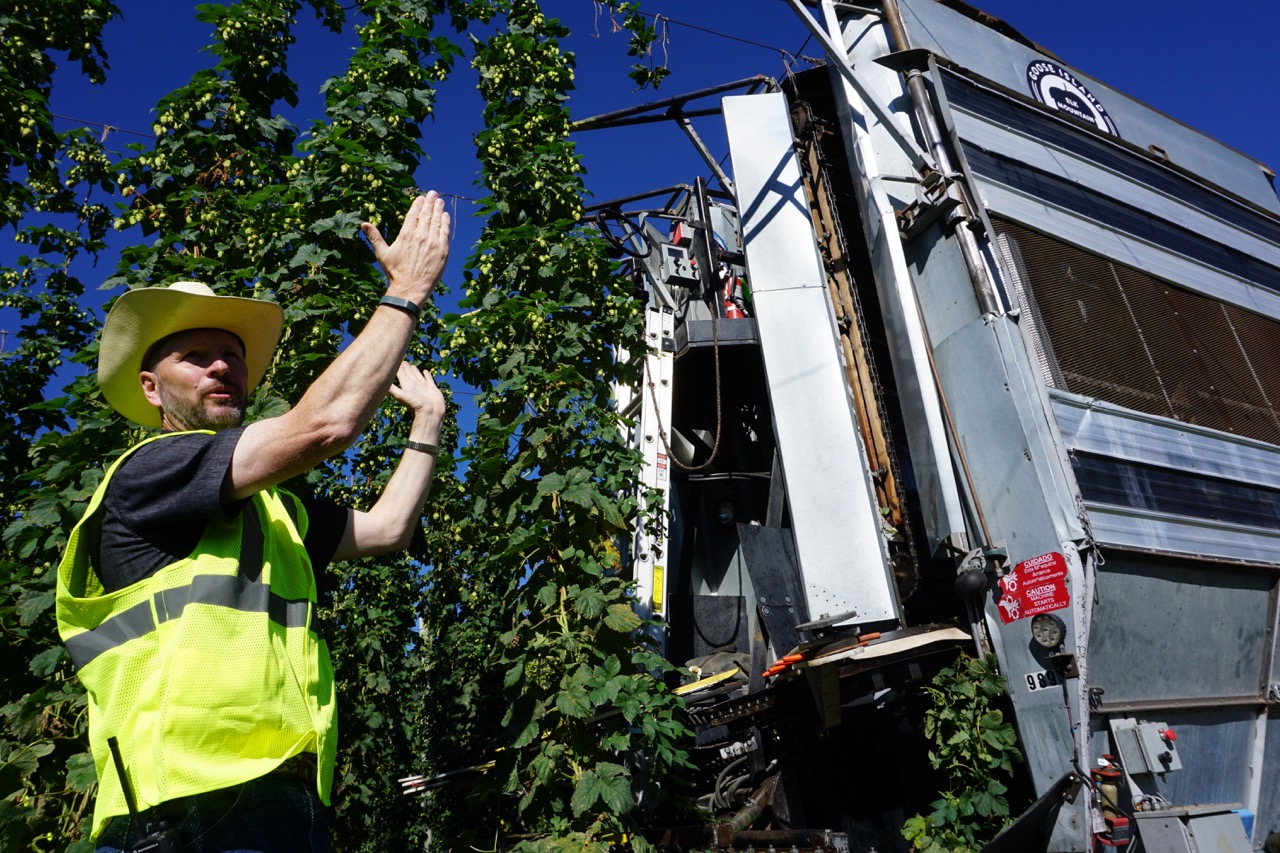
But what makes Elk Mountain truly unique is their ability to facilitate such a high degree of variance in harvest times to accommodate the multitude of requests made by each varying brewery. “Different brewers utilize hops differently and they look for different things in hops — aromatics, bitterness, fruity qualities, etc.,” noted Atkins.
“Amarillo is sold to a variety of our craft brands and they like it at different stages. We tend to always pick it when it’s ripe, but some of our brewers like when it’s slightly overripe and some when it’s really overripe.”
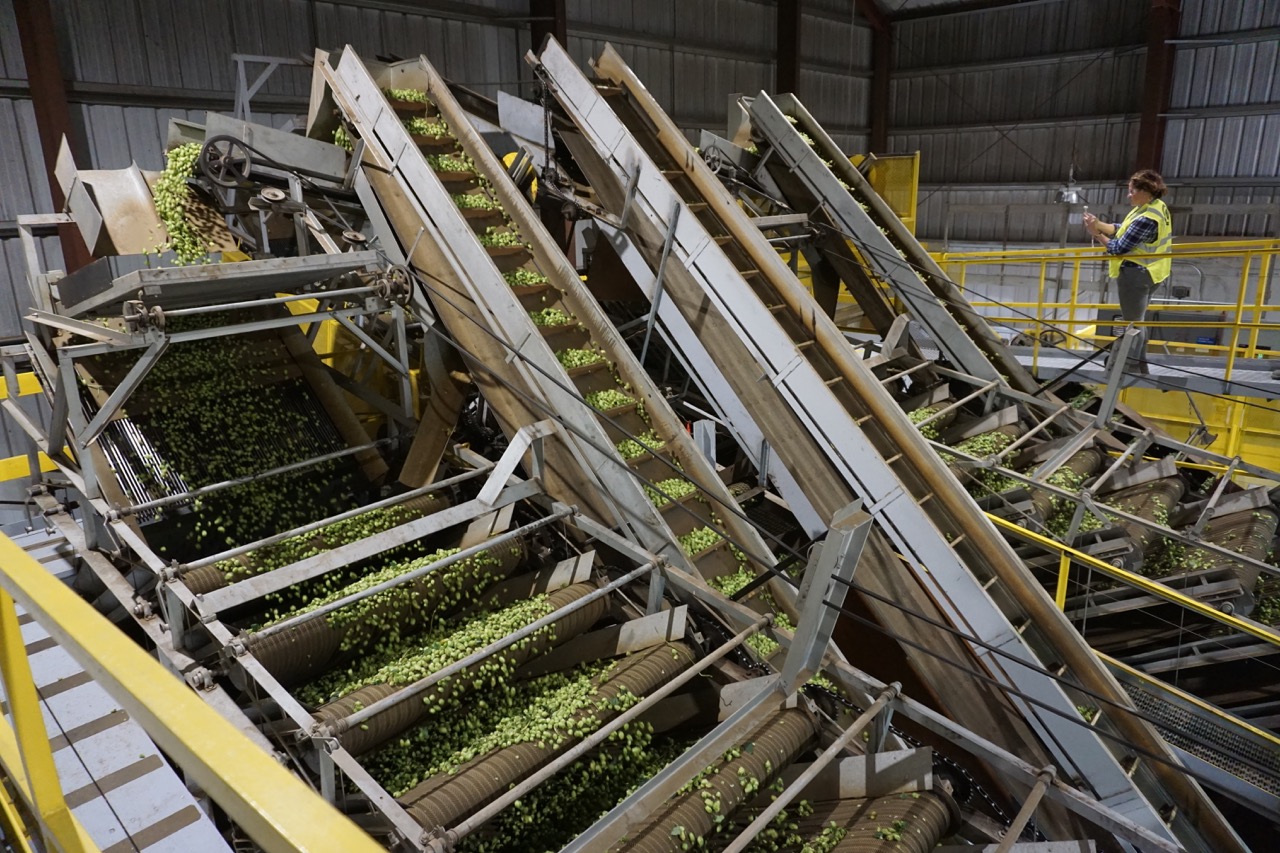
These varying stages of harvest allow the hop plant to take on different characteristics the longer they stay on the vine. While some brewers prefer certain hops earlier for floral, citrus and juicy flavors, others prefer more of a garlic, catty, musky flavor. For Atkins’ team, communicating with each High End brand’s head brewer during their annual hop selection visit to the farm is of the utmost importance. It’s these boots to the ground type visits that help in identifying which of these characteristics they’re aiming to extract for their beers.
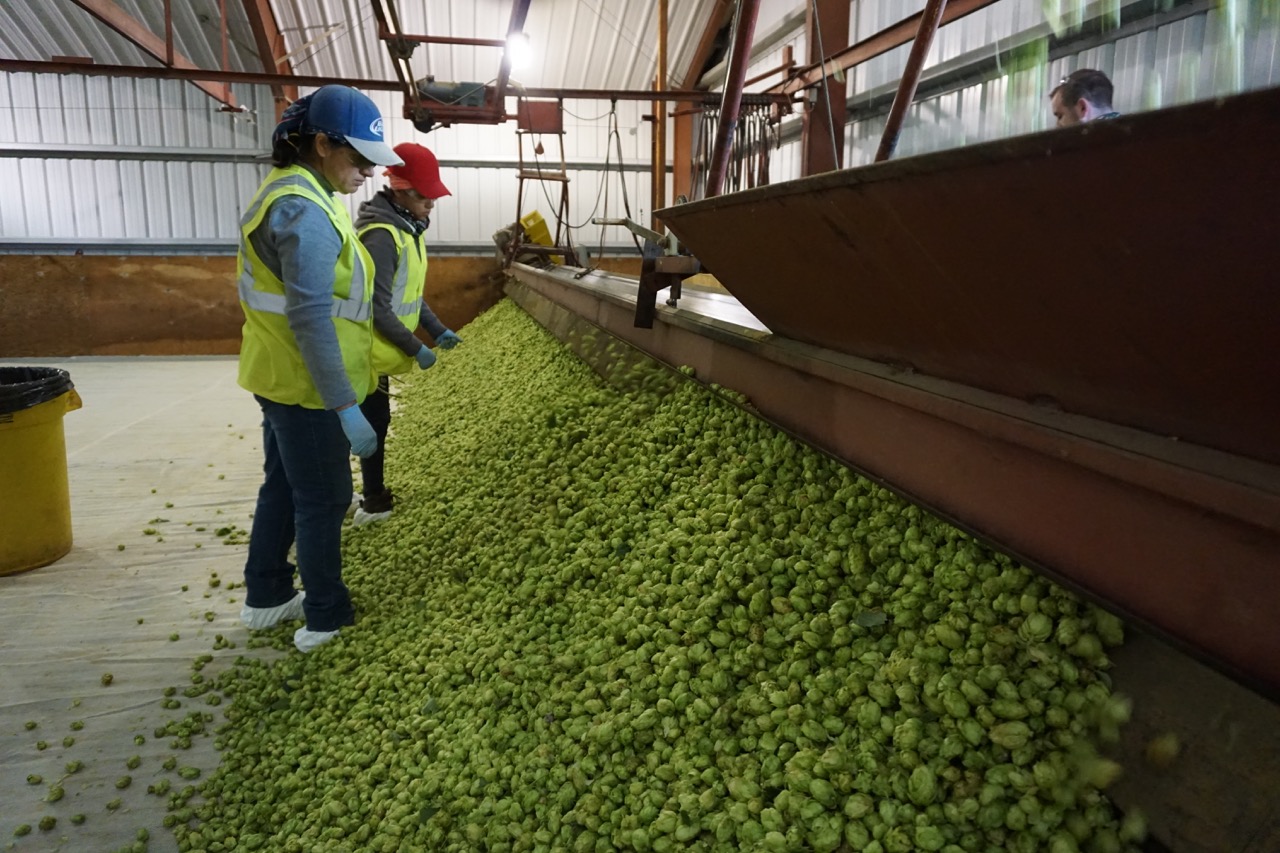
“They can’t go through and examine every single plot so our job is to guide them to parts of the farm that we think fits best for what they’re looking for,” said Atkins.
Elk Mountain, while grand in scale, is a microcosm for the many tiered layers that make up the now thriving beer industry. This $105.9 million beer industry is composed of hop and grain farmers, water treatment facilities, distributors, bars and restaurant works, yeast labs, advertisers, brewers, marketers and much more. We often lose sight of the little things that are involved with the products we consume, but the folks at Elk Mountain and Goose Island understand that for their beers, it often starts during hop harvest season in Bonners Ferry, ID.
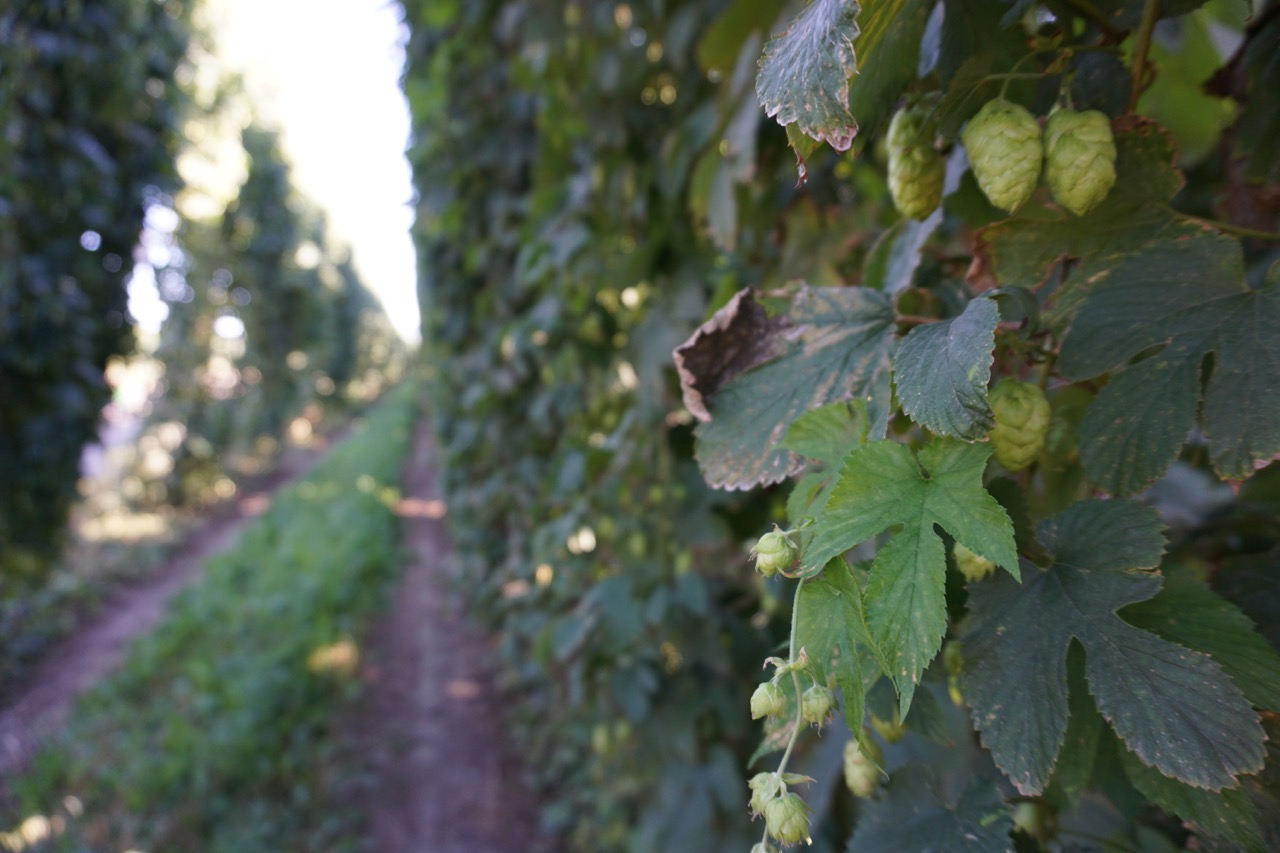
Trip, accommodations, meals and lodging for the trip to Elk Mountain were paid for by Goose Island.


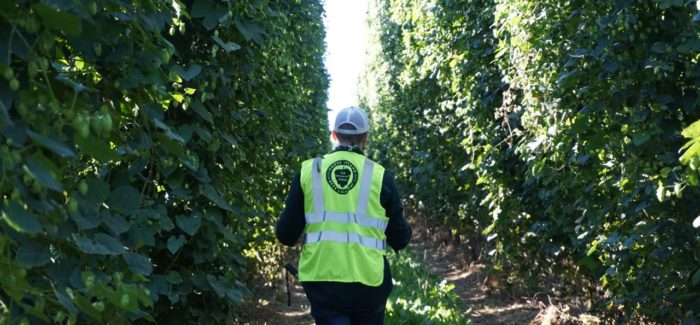





Submit a Comment